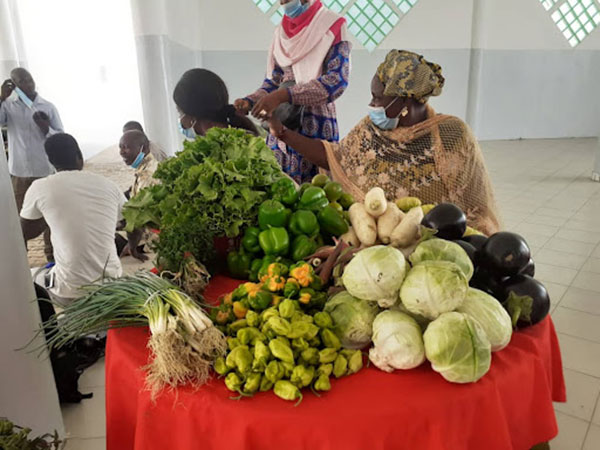By Mamadou SAKINE – Senegal’s agricultural and food policies continue to suffer from a lack of coherence, perceptible at the level of the agricultural sector and its sub-sectors. This is revealed in a study by CICODEV, Afsa and Sos Faim on the state of food policies in Senegal. It also shows that plant crops are given priority attention to the detriment of livestock and fisheries, without meeting a specific policy objective. But also the investments made in fisheries and livestock infrastructures are low and their management inefficient. The report also considers that the absence of a specific policy on food and nutritional security is detrimental to the consideration of its multisectoral nature.
With regard to agricultural policies and the protection and regeneration of nature, the survey identified many blocking factors. These are the lack of integration of the various actors, the individualism that characterizes the game of the actors, due to strong financial pressures, options oriented towards modes of production with a productivist character and destructive of the environment. In addition, the difficulties of access to production factors, in this case land, water, agricultural equipment and inputs are also cited. Not to mention the difficulties in accessing a market that is sufficiently open for the sale of agro-ecological products, the lack of control over the introduction of certain technologies that can become, in the long term, harmful to agricultural and pastoral production, and the inadequacy of support for producers, due in particular to the limited means of intervention of technical and financial partners.
In addition, the study submitted recommendations to move towards sustainable food policies. Thus, on the social and economic level, it calls for increased awareness and commitment of consumers to fight against food dependence and reduce imports, increase the income of producers by establishing short distribution channels. In the same vein, CICODEV and Co. urge the establishment of industrial units for the processing of raw materials from family farms, and the development of strategies for storage and crop protection infrastructures. At the policy level, the study recommends an analytical mapping of actors and their roles in the food system at the national level, the strengthening of interventions and interactions between stakeholders. But it also advocates for agrarian reforms that can allow producers to access land, promote and popularize a set of decentralized laws to give a more active role to local governments (mayors in particular) in the development of sustainable local food systems. Advocacy for the establishment of a “fund dedicated to local and national food production” and the improvement of the food governance system by further limiting the use of pesticides and promoting the use of organic fertilizers and natural ecosystem regeneration techniques are also to be done according to the study.
msakine@lequotidien.sn
Source: The Daily, September 11, 2021

